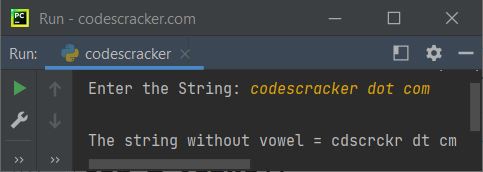- Python Built-in Functions
- Python All Built-in Functions
- Python print() Function
- Python input() Function
- Python int() Function
- Python float() Function
- Python len() Function
- Python range() Function
- Python str() Function
- Python ord() Function
- Python chr() Function
- Python ascii() Function
- Python pow() Function
- Python type() Function
- Python List Functions
- Python list() Function
- Python insert() Function
- Python append() Function
- Python extend() Function
- Python pop() Function
- Python remove() Function
- Python reverse() Function
- Python sort() Function
- Python sorted() Function
- Python Dictionary Functions
- Python dict() Function
- Python update() Function
- Python get() Function
- Python keys() Function
- Python setdefault() Function
- Python fromkeys() Function
- Python items() Function
- Python popitem() Function
- Python Tuple Function
- Python tuple() Function
- Python Set Functions
- Python set() Function
- Python frozenset() Function
- Python String Functions
- Python split() Function
- Python join() Function
- Python format() Function
- Python replace() Function
- Python Iterator Functions
- Python iter() Function
- Python min() Function
- Python max() Function
- Python sum() Function
- Python count() Function
- Python index() Function
- Python copy() Function
- Python clear() Function
- Python next() Function
- Python filter() Function
- Python enumerate() Function
- Python zip() Function
- Python reversed() Function
- Python Number Functions
- Python abs() Function
- Python bin() Function
- Python oct() Function
- Python hex() Function
- Python round() Function
- Python divmod() Function
- Python complex() Function
- Python File Handling Functions
- Python open() Function
- Python read() Function
- Python readable() Function
- Python readline() Function
- Python readlines() Function
- Python write() Function
- Python writable() Function
- Python writelines() Function
- Python close() Function
- Python seek() Function
- Python tell() Function
- Python flush() Function
- Python fileno() Function
- Python truncate() Function
- Python Class Functions
- Python object() Function
- Python property() Function
- Python getattr() Function
- Python setattr() Function
- Python hasattr() Function
- Python delattr() Function
- Python classmethod() Function
- Python staticmethod() Function
- Python issubclass() Function
- Python super() Function
- Python Misc Functions
- Python all() Function
- Python any() Function
- Python isatty() Function
- Python bool() Function
- Python callable() Function
- Python globals() Function
- Python locals() Function
- Python dir() Function
- Python id() Function
- Python isinstance() Function
- Python map() Function
- Python repr() Function
- Python slice() Function
- Python vars() Function
- Python Advance Functions
- Python help() Function
- Python hash() Function
- Python breakpoint() Function
- Python bytes() Function
- Python bytearray() Function
- Python memoryview() Function
- Python compile() Function
- Python eval() Function
- Python exec() Function
- Python Tutorial
- Python Tutorial
- Python Examples
- Python Examples
Python filter() Function
The filter() function in Python is used when we need to modify an iterator. This function takes two parameters, the first parameter refers to the function that performs the modification, whereas the second parameter refers to an iterator object to modify. For example:
nums = [12, 23, 34, 45, 56, 67, 78, 89, 90] def myfun(x): if x%2 == 0: return True else: return False even = filter(myfun, nums) for val in even: print(val)
The output produced by this program would be:
12 34 56 78 90
Python filter() Function Syntax
The syntax of filter() function in Python is:
filter(function, iterable)
where function refers to a user-defined function that will get created to check for each item available in the iterable such as list, tuple etc.
Python filter() Function Example
Here is an example of filter() function in Python. This program allows user to enter a string at run-time of the program. Using the list() function, all the characters of string gets initialized to char list. And using the filter() function, it gets filtered in a way to print the same string without vowel:
print("Enter the String: ", end="") str = input() chars = list(str) vowels = ['A', 'E', 'I', 'O', 'U', 'a', 'e', 'i', 'o', 'u'] def myfun(x): if x not in vowels: return True else: return False v = filter(myfun, chars) print("\nThe string without vowel = ", end="") for c in v: print(c, end="")
The snapshot given below shows the sample run of this program, with user input codescracker dot com:

« Previous Function Next Function »